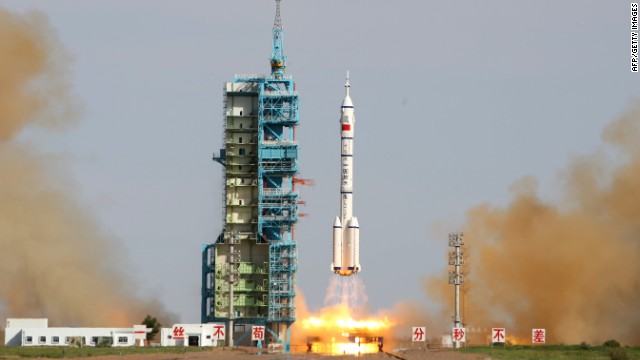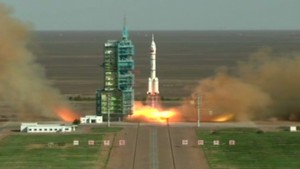Thursday, August 29, 2013
China sets course for lunar landing this year - CNN

- China announces plans to land first lunar probe by the end of the year
- Chang'e-3 will be launched from the Xichang Satellite Launch Center in southwest China
- The mission constitutes the second phase of China's lunar program
- The mission includes orbiting, landing and returning to Earth
(CNN) -- China set a bold new course in its ambitious space program Wednesday, when it announced plans to land its first probe on the moon by the end of the year.
The country's State Administration of Science, Technology and Industry for National Defence told state media the Chang'e-3 lunar probe had officially entered its launch stage and by the end of the year, China would land a space probe on a celestial body for the first time.
"The Chang'e-3 mission makes best use of a plethora of innovative technology. It is an extremely difficult mission, that carries great risk," Ma Xingrui, the head of China's space exploration body and chief commander of the lunar program, told the Xinhua news agency.
Chang'e-3 will be launched from the Xichang Satellite Launch Center in southwest China, China's space agency said.
If successful, Chang'e-3 will be not only China's first attempt at a soft-landing on the lunar surface but the first time a soft-landing has been carried out since America's Apollo missions of the 1960s and 70s.
 Teaching class from a space lab
Teaching class from a space lab  China launches manned spacecraft
China launches manned spacecraft  China unveils new space mission
China unveils new space mission The mission will make up the second phase of China's lunar program which includes orbiting, landing and returning to Earth. Earlier missions included plotting a high-resolution, full-coverage lunar map.
While some took to Chinese social media to deride the announcement as "wasteful" and an unnecessary provocation -- the U.S. has previously expressed anxiety that China's space program masks the country's interest in developing space-launched weapons -- most netizens greeted the project with enthusiasm.
"Remember to bring more national flags and put them up on the moon," posted one user on popular micro-blogging service, Sina Weibo.
The decision by the Obama administration in 2010 to abandon NASA's plans to return to the moon has presented an opportunity for China, which some experts say could allow them to become the second nation to put a man on the moon by 2020.
With a budget estimated to be around $2bn a year -- almost a tenth of the budget NASA receives - China has stepped up the pace of its space program since first sending astronaut Yang Liwei into orbit in 2003. In 2012, it conducted 18 space launches, according to the Pentagon.
While NASA has pledged to land a man on an asteroid by 2025, many experts believe that successive U.S. administrations have lost the will to take on further moon missions.
"NASA is not going to the Moon with a human as a primary project probably in my lifetime. And the reason is, we can only do so many things," NASA administrator Charles Bolden told a joint meeting of the Space Studies Board and the Aeronautics and Space Engineering Board in Washington this year.
"I don't know how to say it any more plainly," he said. "NASA does not have a human lunar mission in its portfolio and we are not planning for one."
Instead, he said the focus would remain on human missions to asteroids and to Mars.
"We intend to do that, and we think it can be done."
But a former chief administrator at NASA, Michael Griffin, giving testimony to the Senate in 2007, heavily criticized Obama's space plans as an admission that NASA would not be a significant player in human space flight.
Giving testimony to the Senate in 2007, he said it was likely that "China will be able to put people on the moon before we will be able to get back."
Source : http://www.cnn.com/2013/08/29/world/asia/china-space/